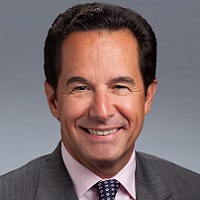 By Gerald A. Maccioli, MD, MBA, FCCM, FASA, Chief Medical Officer, HHS Technology Group
By Gerald A. Maccioli, MD, MBA, FCCM, FASA, Chief Medical Officer, HHS Technology Group
LinkedIn: Gerald A. Maccioli, MD, MBA, FCCM, FASA
LinkedIn: HHS Technology Group
Medicaid, a joint federal and state program, plays a vital role in providing healthcare coverage to millions of vulnerable individuals and families in the United States. As of January 2022, Medicaid was serving over 90 million people, making it one of the largest public health insurance programs in the country.
To ensure the effective and efficient functioning of Medicaid, as well as to prevent fraud, waste, and abuse, Program Integrity Units should be established within the Medicaid system. This article aims to provide a detailed overview of these units, their significance, and their role in upholding program integrity.
Understanding Medicaid and the importance of program integrity
Medicaid, administered by the Centers for Medicare & Medicaid Services (CMS), is a state and federally funded program that provides healthcare coverage to low-income individuals and families. It is a lifeline for vulnerable populations, including children, the elderly, pregnant women, and disabled individuals. The federal government sets certain guidelines and requirements for Medicaid, but each state has the flexibility to adapt the program to its specific needs, resulting in variations in eligibility criteria, benefits, and administration across states.
Medicaid is a critical safety net program, but its size and complexity make it susceptible to fraud, waste, and abuse. In 2022, Medicaid accounted for about 9% of the federal budget, making it an attractive target for fraudulent activities. Fraudulent actions can encompass anything from billing for services not provided to enrolling ineligible recipients, ultimately diverting resources away from those who truly need them.
Program Integrity Units: A Defensive Shield
Program Integrity Units (PIUs) are specialized teams within state Medicaid agencies tasked with safeguarding the program’s integrity. Their primary functions include detecting and preventing fraud, ensuring the accuracy of Medicaid eligibility determinations, and recovering overpayments. These units operate at the state level and vary in structure and resources based on each state’s needs and priorities.
Following are three essential ways that PIUs serve as a defensive shield for Medicaid:
- Fraud Detection: PIUs use data analysis, investigations, and advanced technology to detect suspicious patterns and activities. They scrutinize claims, provider billing practices, and beneficiary enrollment to identify irregularities. By identifying fraudulent claims and providers, they save substantial Medicaid resources.
- Data Analysis: PIUs employ data analytics tools to sift through vast amounts of claims data. By identifying unusual billing patterns or other anomalies, they can flag potential issues for further investigation.
- Investigations: When suspicious activity is detected, PIUs conduct thorough investigations, which may involve interviews, site visits, and the examination of financial records. This helps gather evidence to support potential legal actions.
- Advanced Technology: PIUs often leverage advanced technology, including artificial intelligence and machine learning, to enhance their fraud detection capabilities. These tools can identify complex patterns that might be missed through manual analysis alone.
- Eligibility Verification: Ensuring that only eligible individuals receive Medicaid benefits is a fundamental responsibility of PIUs. They conduct reviews and audits to confirm that beneficiaries meet the necessary criteria, thus preventing ineligible individuals from receiving Medicaid benefits.
- Continuous Monitoring: PIUs may implement ongoing monitoring of beneficiary eligibility. This includes verifying income levels, household composition, and other factors that influence eligibility. Any changes in circumstances are assessed to ensure that benefits are adjusted accordingly.
- Redeterminations: Beneficiaries are often required to undergo periodic redetermination processes to maintain their eligibility. PIUs oversee these processes to confirm that recipients continue to qualify for Medicaid.
- Recovery and Investigation: When overpayments occur due to fraud or errors, PIUs work to recover the funds. They may also participate in investigations, which can lead to legal actions against those involved in fraudulent activities.
- Overpayment Recovery: PIUs work with healthcare providers and other stakeholders to recover funds that were inappropriately disbursed. This may involve negotiations, repayment plans, or legal action if necessary.
- Legal Actions: In cases where fraud or abuse is substantiated, PIUs may collaborate with law enforcement agencies to pursue legal actions against those responsible. This can lead to criminal or civil charges and, if convicted, penalties and restitution.
Challenges Faced by Program Integrity Units
While PIUs are essential in protecting Medicaid, they face several challenges. Limited resources, staffing shortages, and evolving fraudulent techniques can strain their efforts. Additionally, the ongoing changes and complexities in healthcare policies and regulations necessitate constant adaptation and training.
- Resource Constraints: Many PIUs operate with limited budgets and staff, which can hinder their ability to carry out comprehensive fraud prevention and detection activities.
- Staffing Shortages: Attracting and retaining qualified personnel, such as fraud investigators and data analysts, can be challenging. The expertise required for these roles is in high demand.
- Evolving Fraud Techniques: Fraudsters continually adapt and develop new strategies to exploit the Medicaid program. PIUs must stay ahead of these tactics through ongoing training and the use of advanced technology.
- Regulatory Complexity: Frequent changes in healthcare policies and regulations demand a deep understanding of the evolving landscape. PIUs must keep up with these changes to remain effective.
Conclusion
Program Integrity Units within Medicaid are an integral part of safeguarding the program’s integrity, ensuring that it fulfills its mission to provide healthcare access to the most vulnerable members of society. These units play a crucial role in detecting and preventing fraud, verifying eligibility, recovering overpayments, and educating stakeholders.
By effectively countering fraudulent activities, PIUs contribute to the sustainability of Medicaid and the protection of healthcare access for millions of Americans. As the healthcare landscape continues to evolve, the role of Program Integrity Units becomes even more critical in upholding the stability of Medicaid and ensuring that it remains a cornerstone of healthcare access in the United States.
